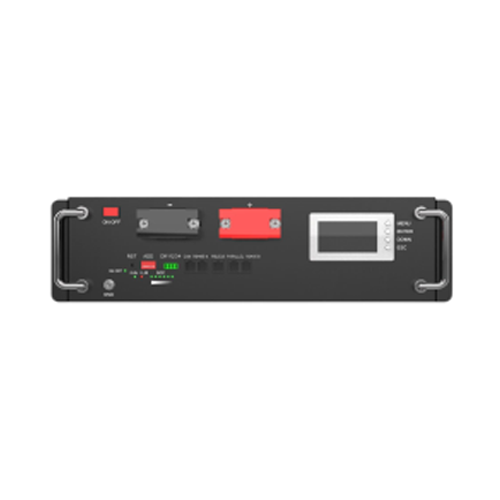How 48V Lithium Battery Packs Enhance Renewable Energy Systems
How 48V Lithium Battery Packs Enhance Renewable Energy Systems
Introduction to 48V Lithium Battery Packs
In the quest for sustainable energy solutions, **48V lithium battery packs** have emerged as a game-changer. They play a crucial role in enhancing the efficiency, reliability, and scalability of **renewable energy systems**. This article dives deep into the mechanics of these battery packs,
2025-09-03

How 48V Lithium Battery Packs Enhance Renewable Energy Systems
Introduction to 48V Lithium Battery Packs
In the quest for sustainable energy solutions, **48V lithium battery packs** have emerged as a game-changer. They play a crucial role in enhancing the efficiency, reliability, and scalability of **renewable energy systems**. This article dives deep into the mechanics of these battery packs, their advantages, and their significant contributions to renewable energy infrastructures.
Understanding Renewable Energy Systems
Before exploring the specific benefits of 48V lithium battery packs, it’s essential to understand what renewable energy systems entail. Renewable energy systems harness natural resources, such as solar, wind, and hydroelectric energy, to generate power. Key aspects of these systems include:
The Role of Storage in Renewable Energy
One of the major challenges facing renewable energy systems is the inconsistency of energy supply. **Energy storage** solutions, particularly battery systems, are vital. They store excess energy generated during peak production times and release it when production is low. This ensures a stable and reliable energy supply.
Types of Battery Technologies
Various battery technologies support renewable energy systems, including lead-acid, nickel-cadmium, and lithium-ion batteries. Among these, **lithium-ion batteries**—especially **48V lithium battery packs**—are gaining traction due to their superior performance characteristics.
Key Advantages of 48V Lithium Battery Packs
When compared to other battery types, 48V lithium battery packs offer distinct advantages that enhance the efficiency of renewable energy systems.
1. Higher Energy Density
**Energy density** refers to the amount of energy stored per unit weight. 48V lithium battery packs have a higher energy density than traditional batteries, meaning they can store more energy in a smaller, lighter package. This characteristic is crucial for applications in renewable energy systems where space and weight are often at a premium.
2. Longer Lifespan
**Longevity** is another significant advantage. Lithium batteries generally have a lifespan of 10-15 years, significantly outlasting traditional lead-acid batteries, which typically last 3-5 years. The extended lifespan of 48V lithium battery packs reduces the frequency of replacements, driving down overall costs and waste.
3. Faster Charging and Discharging Rates
48V lithium battery packs can charge and discharge much more rapidly than their counterparts. This capability is particularly beneficial for systems that require quick bursts of energy, such as those using solar panels. During peak sunlight hours, these batteries can store energy quickly, ensuring availability when needed.
4. Enhanced Safety Features
Safety is paramount in energy storage solutions. 48V lithium battery packs are designed with advanced safety features, including thermal management systems and protection against overcharging and short-circuiting. These features minimize the risk of accidents and ensure reliable operation.
5. Eco-Friendly Solution
As society moves toward sustainability, the environmental impact of energy solutions is more critical than ever. 48V lithium battery packs are less harmful to the environment compared to traditional batteries. They have a lower risk of leakage and are more recyclable, aligning with the goals of renewable energy systems.
Applications of 48V Lithium Battery Packs in Renewable Energy Systems
The versatility of 48V lithium battery packs allows their integration into various renewable energy applications.
1. Solar Energy Systems
In solar installations, 48V lithium battery packs store excess energy generated during sunlight hours. This stored energy can power homes and businesses during the night or on cloudy days, ensuring a continuous energy supply.
2. Wind Energy Systems
Wind energy systems also benefit from these battery packs. They can effectively store energy generated when wind conditions are optimal and release it during calmer periods, thus stabilizing the energy output from wind turbines.
3. Off-Grid Applications
For off-grid renewable energy solutions, 48V lithium batteries provide a reliable energy source. They are ideal for remote locations, where access to traditional power sources is limited, ensuring energy independence.
Integration with Smart Technology
Modern renewable energy systems increasingly integrate with smart technology and IoT devices. 48V lithium battery packs can easily connect to these systems, allowing for better management and monitoring of energy usage.
Smart Monitoring Systems
With the integration of smart technology, users can monitor their energy usage in real-time. This data helps optimize energy consumption and enhances the overall efficiency of renewable energy systems.
Energy Management Systems (EMS)
Energy Management Systems can analyze data from 48V lithium battery packs and other energy sources, making automated decisions to optimize energy usage and reduce costs. This integration marks a significant shift toward more intelligent energy solutions.
The Future of 48V Lithium Battery Packs in Renewable Energy
As technology advances, the capabilities and efficiencies of 48V lithium battery packs will continue to improve. Research and development efforts are focused on enhancing their performance, reducing costs, and increasing recycling capabilities.
Advancements in Battery Technology
Innovations such as solid-state batteries and improved battery management systems promise to extend the lifespan and efficiency of lithium batteries further. As these advancements are made, the role of 48V lithium battery packs in renewable energy systems will become even more critical.
Increased Adoption of Renewable Energy
As the world shifts towards renewable energy sources, the demand for efficient and reliable energy storage solutions will grow. 48V lithium battery packs are poised to become an essential component of this transition.
FAQs About 48V Lithium Battery Packs and Renewable Energy Systems
1. What are 48V lithium battery packs used for?
48V lithium battery packs are primarily used for energy storage in renewable energy systems, including solar and wind applications, as well as in off-grid setups.
2. How do 48V lithium battery packs compare to lead-acid batteries?
They have a higher energy density, longer lifespan, faster charge and discharge rates, and enhanced safety features compared to lead-acid batteries.
3. Can 48V lithium battery packs be recycled?
Yes, they are more recyclable than traditional batteries. Many manufacturers are working on improving recycling processes for lithium batteries to minimize environmental impact.
4. How long do 48V lithium battery packs last?
Typically, 48V lithium battery packs can last between 10 to 15 years, depending on usage and maintenance.
5. Are 48V lithium battery packs safe to use?
Yes, they are designed with advanced safety features, including thermal management and protections against overcharging and short circuits, making them safe for use in renewable energy systems.
Conclusion
The integration of **48V lithium battery packs** into renewable energy systems represents a significant leap forward in the pursuit of sustainability. Their high energy density, longevity, and safety make them an ideal choice for various applications, from solar power to off-grid systems. As technology continues to evolve, these battery packs will undoubtedly play a crucial role in shaping the future of energy storage and renewable energy solutions. By embracing 48V lithium battery technology, we can enhance the efficiency and reliability of our energy systems, paving the way for a more sustainable future.
Key words:
Related News


